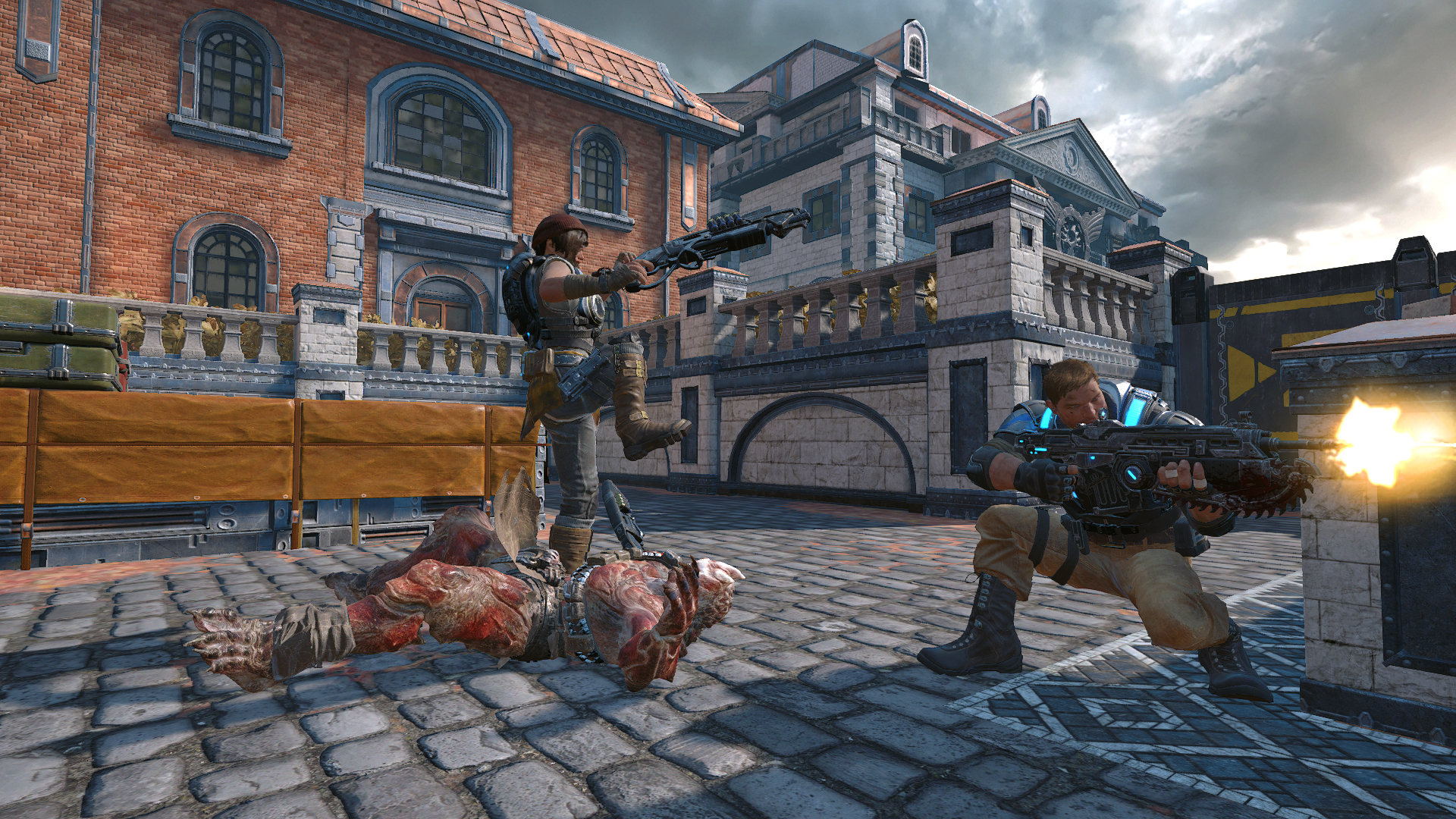When it comes to sound, Gears of War 4 is the first game that doesn't fake it
The amazing sound of the killing hoardes

Gears of War 4 will be the first game in the world to use Triton, a sound technology that accurately maps sound in 3D spaces.
Triton is a proprietary piece of software created by Microsoft Research, and it's essentially dynamic reverb; elements about your environment are taken into consideration in order to produce more accurate sounds.
This is how The Coalition Creative Director Chuck Osieja described it: "The same way that when you light an area, you put a sun in the sky in your level and the technology maps where the sun's going to hit... What Triton does is the exact same thing for audio."
"Every game prior to this, they faked it"
Triton takes into account your distance from the sound but also the space you're in and the materials the sounds are bouncing off.
Ears of war
For example, if I shoot someone inside a building then that gunshot is going to sound differently to the person stood outside, but if another person is stood at an equal distance but under a metal roof, a different sound will be produced for them.
"Every game prior to this, they faked it," said Osieja. "Basically an audio person says 'Ok, if I'm standing in this room and a grenade goes off outside and the doors open then I want it to be 50 per cent as loud'.
Sign up for breaking news, reviews, opinion, top tech deals, and more.
"What Triton says is 'Maybe it will be 10% as loud. Maybe you'll barely hear it, it will sound like a little pop'. But that's all based in reality, based on materials, based on the weapon, based on your distance from whatever that object is."
Gears of War 4 will be released on Xbox One on October 11. You can read our full preview of the multiplayer here.
How to build a VR-ready PC for less than $900.

Hugh Langley is the ex-News Editor of TechRadar. He had written for many magazines and websites including Business Insider, The Telegraph, IGN, Gizmodo, Entrepreneur Magazine, WIRED (UK), TrustedReviews, Business Insider Australia, Business Insider India, Business Insider Singapore, Wareable, The Ambient and more.
Hugh is now a correspondent at Business Insider covering Google and Alphabet, and has the unfortunate distinction of accidentally linking the TechRadar homepage to a rival publication.